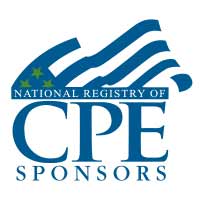Classroom Sessions:
| Date | Venue | Fees | |
|---|---|---|---|
| 03 - 07 Jun 2024 | Amsterdam - The Netherlands | $5,950 | |
| 02 - 06 Dec 2024 | Amsterdam - The Netherlands | $5,950 |
INTRODUCTION
This GLOMACS Real Estate Economics and Valuation training course is designed to enable delegates to understand how to create value in the largest asset class in the world. It combines two vital sets of skills for real estate professionals. First, attendees grasp the lessons learned from the application of economics to real estate: how cities are created and grow, land is zoned and utilized through planning, infrastructure, and buildings, and how value is created by real estate actors as a result.
And second, attendees learn to value most typical forms of real estate using a variety of techniques and methods, using the same methods as a chartered surveyor and with examples drawn from real practice. The focus is on properties and market conditions in the Middle East, both existing property and new development, but with plenty of international examples, including land, properties with development potential, and different classes of property, including villas, apartments, offices, retail, hotels, warehouses, and specialized property.
This Real Estate Economics and Valuation training course will highlight:
- Understand how real estate economics works to create value from land to completed developments and cities
- Learn the roles of different real estate stakeholders and how they interact through planning, infrastructure, construction, and management
- Appreciate the connections between real estate economics and valuation principles and practice
- Successfully implement a range of different real estate valuation frameworks
- Acquire the ability to value a range of different types of properties across different jurisdictions
Training Methodology
This training course will be thoroughly interactive, reinforcing learning through practical real-world exercises and examples throughout. Delegates may be asked to perform calculations, analyse financial aspects of the case, and draw conclusions, or make presentations to other groups regarding the case. The interactivity generated by the case study process, as well as by contributions by delegates within the course. Generally, encourage questions and discussion throughout to make the course learning experience worthwhile for the delegates.
WHO SHOULD ATTEND?
This GLOMACS Real Estate Economics and Valuation training course is suitable for a wide range of delegates, as real estate value is central to the strategies of most commercial organisations, as well as to the public sector.
It will greatly benefit those who develop, finance, manage, buy, or sell real estate, especially:
- Real Estate Economists
- Regulators and Urban Planners
- Real Estate Developers (especially those with a develop-and-hold strategy)
- Land and Construction Professionals (including quantity and chartered surveyors, and other real estate valuers)
- Investors in Real Estate (including pension funds, private equity firms, REITs, REOCs, insurance companies, and opportunity/hedge funds)
- Investment Bankers, Fund Managers, and Finance Professionals engaged in real estate development and investment
- Bankers and Lenders
- Public and Private Sector Property Managers
- Property Tenants (such as major retailers, banks, government agencies or industrial companies)
- Institutional Lenders (such as banks, life insurance companies and pension funds)
- Lawyers, Accountants and other Consultants advising the real estate industries
DAY 1
Real Estate Background
- Real Estate investment and management within the larger global economy
- Types of property and their performance
- The role of real estate in corporate performance analysis
- Property taxation, valuation, and legal framework
- Key stakeholders within the property industry
- Property professionals and their role
- Financing Property Purchase through debt and equity
- Islamic Finance and Real Estate
DAY 2
Real Estate in the Corporate World
- The Commercial Real Estate Market in perspective
- Construction, planning, and commercial real estate demand
- Analysing the Market: rents, prices, yields, construction costs, vacancy rates and all data
- Occupancy strategies: ownership vs leasing
- Build-to-suit and other development corporate development approaches
- ESG for corporate real estate in the Middle East
- Risk Issues for Corporate Real Estate
- Crafting and executing a corporate real estate plan
DAY 3
The Law and the Occupier
- Legal issues for property professionals in conveyancing and ownership
- Applied Property and Mortgage Law
- Legal issues in building and construction, planning, and development
- Legal and insurance responsibilities of for owners and occupiers
- Islamic property legal issues
- Types, Structure, Covenants and Regulation of Leases
- Lease Calculations (with worked examples and exercises)
- Tenant and Housing selection and management
- Marketing, Advertising, and Management considerations for commercial buildings
DAY 4
Bricks and Mortar: Property Management
- Property Management and Real Estate Budgeting
- The role of the Property Manager (including outsourcing and contracts)
- Construction techniques and property occupancy
- Concept and application of Facilities Management
- The co-ordination of people, processes, and workplace
- Quality management, property lifecycles, energy, sustainability, and benchmarking
- Technology and administrative controls, including sustainability criteria
- Advanced Operations and Facilities Management issues
DAY 5
Asset and Portfolio Management
- Business Management and Real Estate
- Strategic Business Planning processes
- Analysing industry trends
- Financial Management Principles
- Real Estate Investment Strategy
- Ownership Forms and Goals
- The Role of Real Estate Funds
- Real Estate and Risk in Investment Portfolios
- On successful completion of this training course, GLOMACS Certificate will be awarded to the delegates
- Continuing Professional Education credits (CPE) : In accordance with the standards of the National Registry of CPE Sponsor, one CPE credit is granted per 50 minutes of attendance
Endorsed Education Provider
GLOMACS is registered with the National Association of State Boards of Accountancy (NASBA) as a sponsor of continuing professional education on the National Registry of CPE Sponsors. State boards of accountancy have final authority on the acceptance of individual courses for CPE credit. Complaints regarding registered sponsors may be submitted to the National Registry of CPE Sponsors through its website: www.NASBARegistry.org


